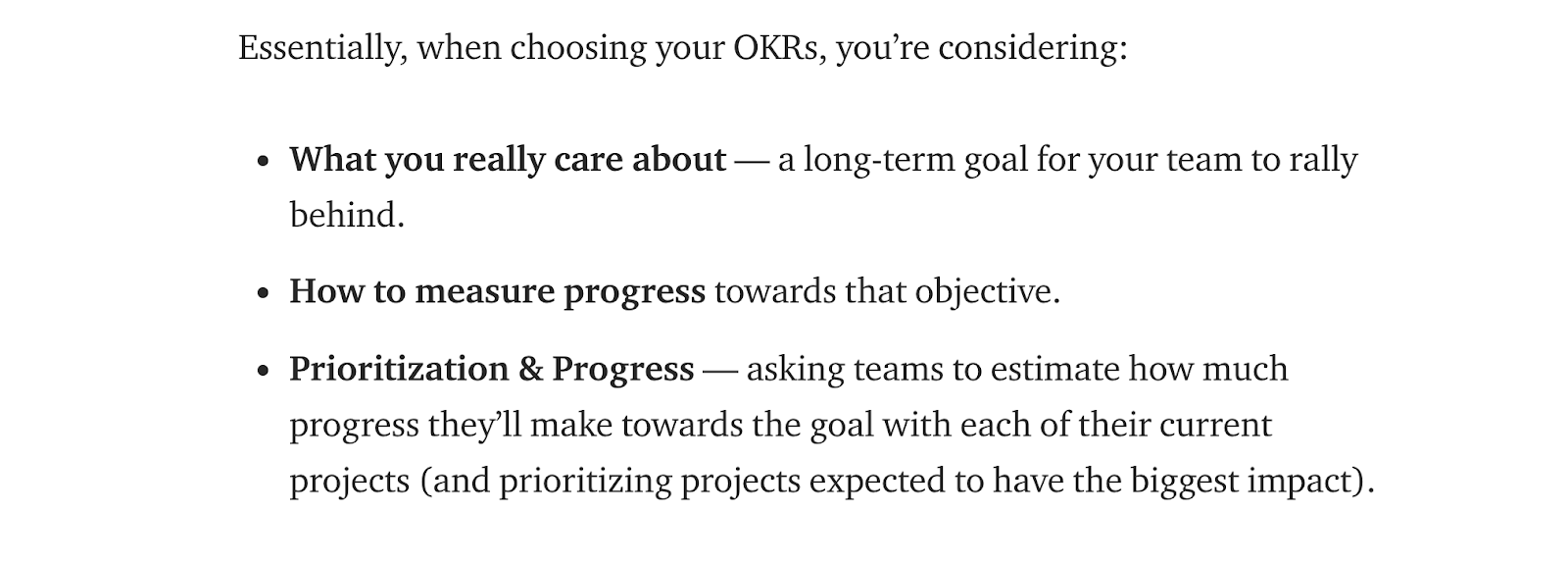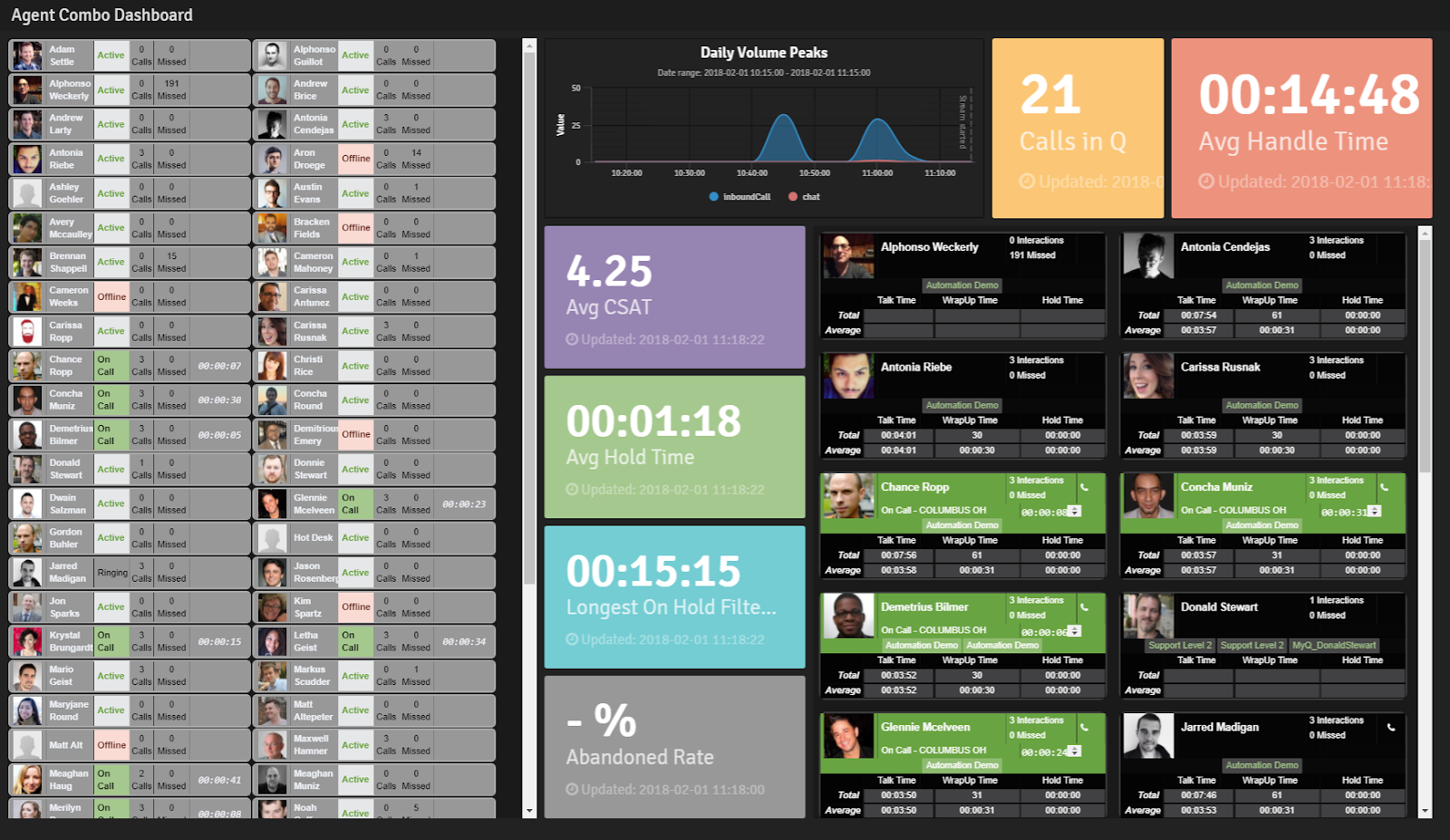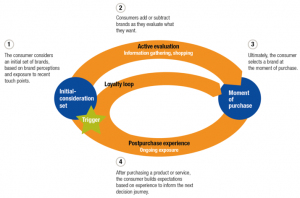Only one in four employees think that their managers deliver meaningful feedback, or that the feedback they get helps them work better. What’s worse, a slim 21% of employees think their performance is managed in a way that motivates them to do outstanding work.
Contact center managers struggle to coach for better performance. Managers swim in a sea of data and metrics, but they fight to weed through what’s valuable to move their KPIs.
In a sea of numbers spread across 13 different screens, how do you know what levers to pull to make real changes in your contact center?
Research shows coaching is vital to employee performance management to drive better business results, employee engagement, and higher customer satisfaction.
And coaching backed by the data that lives in your contact center is even more powerful.
We’re sharing five ways to use your contact center data for improved coaching and employee performance management. Read on.
1. Host team meetings regularly to set clear expectations.
Employees whose managers involve them in setting goals are 3.6x more likely to be engaged than employees who don’t have a hand in their goals, according to Gallup.
Use team meetings as a forum to set goals centered around the business outcomes that matter to your company. Then, create a timeline and determine KPIs to help your team reach those goals and understand performance expectations.
A study from The Strategic Journal of Business & Change Management linked clear KPIs to improved performance at work. Turns out, teams who work towards a clear, shared set of service KPIs were more engaged and productive on the job.
Once goals and KPIs are in place, set a regular meeting cadence where you take time to group up, review performance benchmarks, and talk through what your agents need from you to make progress on their goals. Ask what barriers you can knock down for your team. And, together, pinpoint the metrics that you need to improve to better serve customers.
Coaching to clearly-defined expectations empowers your agents to make progress on a host of metrics that impact customer outcomes. And, when they see improvement along the way, it builds confidence in their work and ability to problem-solve for customers.
2. Work with agents to improve outcomes over metrics.
Sometimes, metrics make us sweat. We ban together to set KPIs and talk through performance expectations. Then, the fear of missing those metrics looms over us minute-by-minute.
While it’s important to have metrics and clear expectations upfront, don’t let metrics dictate your contact center performance strategy and how agents should interact with customers. Instead, use data as a supporting hand to help your agents realize the bigger picture: how they help customers.
How?
In your continued coaching, emphasize outcomes over the individual metrics themselves.
When your next team meeting rolls around, work with your team to define OKRs that support the team performance goals you IDed together.
Nichole Elizabeth DeMeré, SaaS Consultant & Customer Success Evangelist, said data can be used to push team performance to the next level by setting objectives and key results. Different than your high-level contact center goals, these objectives and key results get tactical. They dive in on how each of your agents can make progress and see positive gains towards intended outcomes.

OKRs help your team rally around a central cause, measure their impact, and prioritize to make the biggest impact on your customers. Once defined, your team can keep inching toward the goals you defined together.
3. Have productive 1:1s.
The first step in 1:1s? Have them. Set a standing meeting on your calendar for 1:1s with each of your agents, and honor that time commitment.
Next, use these meetings to review agent performance data. Does Sarah know how she’s doing at work? And, better yet, does she know how she’s doing relative to her peer group?
Review data from your agent dashboards, scorecards, and a handful of customer interactions with your agents. And, clue them in on how their performance stacks up to other agents. Sara might think she’s giving her job her all when handling 40 interactions per day. But if you share that other agents are handling 60 and still meeting KPIs, it gives her a new benchmark for improved performance.
Use data in 1:1s to create an environment of healthy competition to improve agent performance. Praise them when they do well and recognize their efforts even when they miss a few metrics.
4. Create individual performance management plans using benchmark data.
As a call center manager, it’s up to you to delegate tasks and divvy up your team’s workload in a way that benefits each of your agents. All while sticking tight to your KPIs and keeping performance high.
Use knowledge from your 1:1s, paired with performance data, to create performance plans for each agent. If you learned in Sara’s 1:1 that she aspires to be a manager someday, create a performance plan to help her on that career path. Maybe part of her employee performance management plan means letting her lead a team meeting or score peer interactions.
As you work with Sara to create her individual performance plan, let data guide you toward improvement.
If Sara’s metrics show she escalates calls regularly, then you know she’s lacking empowerment to do her job (let alone be a manager someday). Coach to empowerment by giving her more resources and autonomy to do her job. And, if she’s crushing all her KPIs, then you’ll know she’s ready to take on more responsibilities. From there, set new benchmarks and metrics for her to reach: like reviewing 10 peer interactions per week and filling out 10 scorecards. Or, like leaving in-line feedback on five call transcriptions.
Then, as Sara continues in her role, use these new metrics to track her development towards her professional goals – the ones designed with her career path in mind.
“Great coaches aren’t hard to spot. They tend to be managers who take the time to connect with each team member authentically and individually. They value how their employees naturally think and behave and use that information to match employees with assignments and projects that energize them.”
– Ben Wigert and Annamarie Mann of Gallup
5. Give your team the tools to track progress towards their performance goals.
A lack of visibility into daily progress and metrics drains agent performance. According to research from Jeff Toister, agents without visibility into daily performance are more likely to be at severe risk for burnout.
Create dashboards and call center wallboards to put your contact center KPIs on display. Compile the metrics that matter for your team and view them together in a single dashboard.
And, build individual agent dashboards to show agents how they’re performing on an individual level, too. Then, use these agent-specific dashboards to set thresholds and triggers to keep an eye on certain metrics. Use colors, like red, to alert you and your agent at a glance when they’re struggling with a KPI. And, use colors with a positive connotation, like green, to show agents when they’re meeting metrics and delivering excellent customer outcomes.

Jump in and coach in-the-moment when you see your agents struggling. And, use the data to find opportunities for praise, too. If your agents end the day in the green, stop by their desk to hand out some kudos.
Giving your agents the tools to track progress builds confidence in their ability to help customers. Knowing where they’re excelling and where they’re missing the mark gives them the information and autonomy to fix quick issues on the fly. And to come to you with larger issues where they need help.
Drowning in a sea of data and need help making it actionable for your employee performance management? Learn how to create an actionable data strategy for a better customer experience. Get the step-by-step guide.
Business & Finance Articles on Business 2 Community
(64)
Report Post



